The Cold War
Berlin

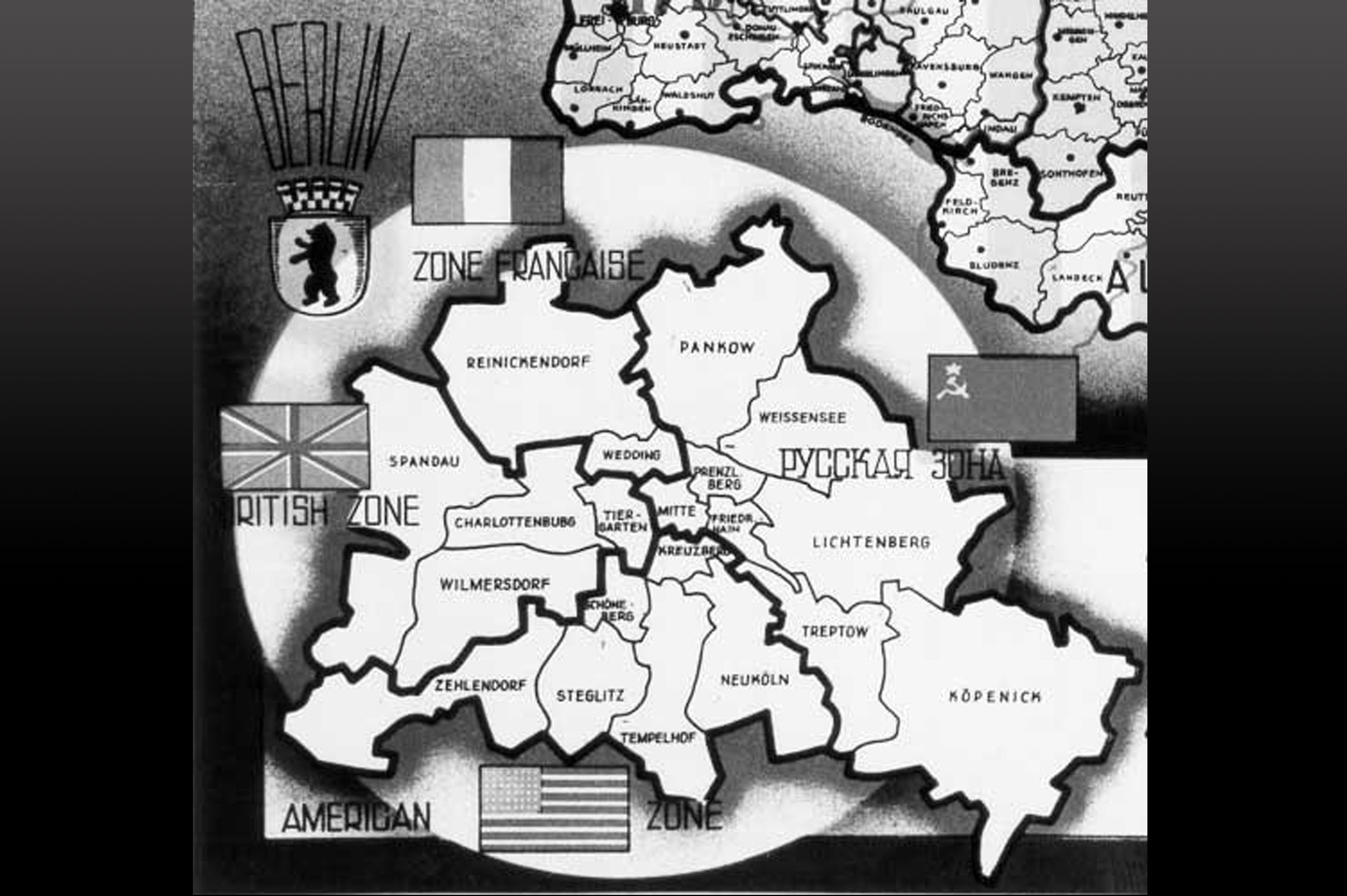
Map of divided Germany and its capital, Berlin, located within the Soviet-occupied zone.
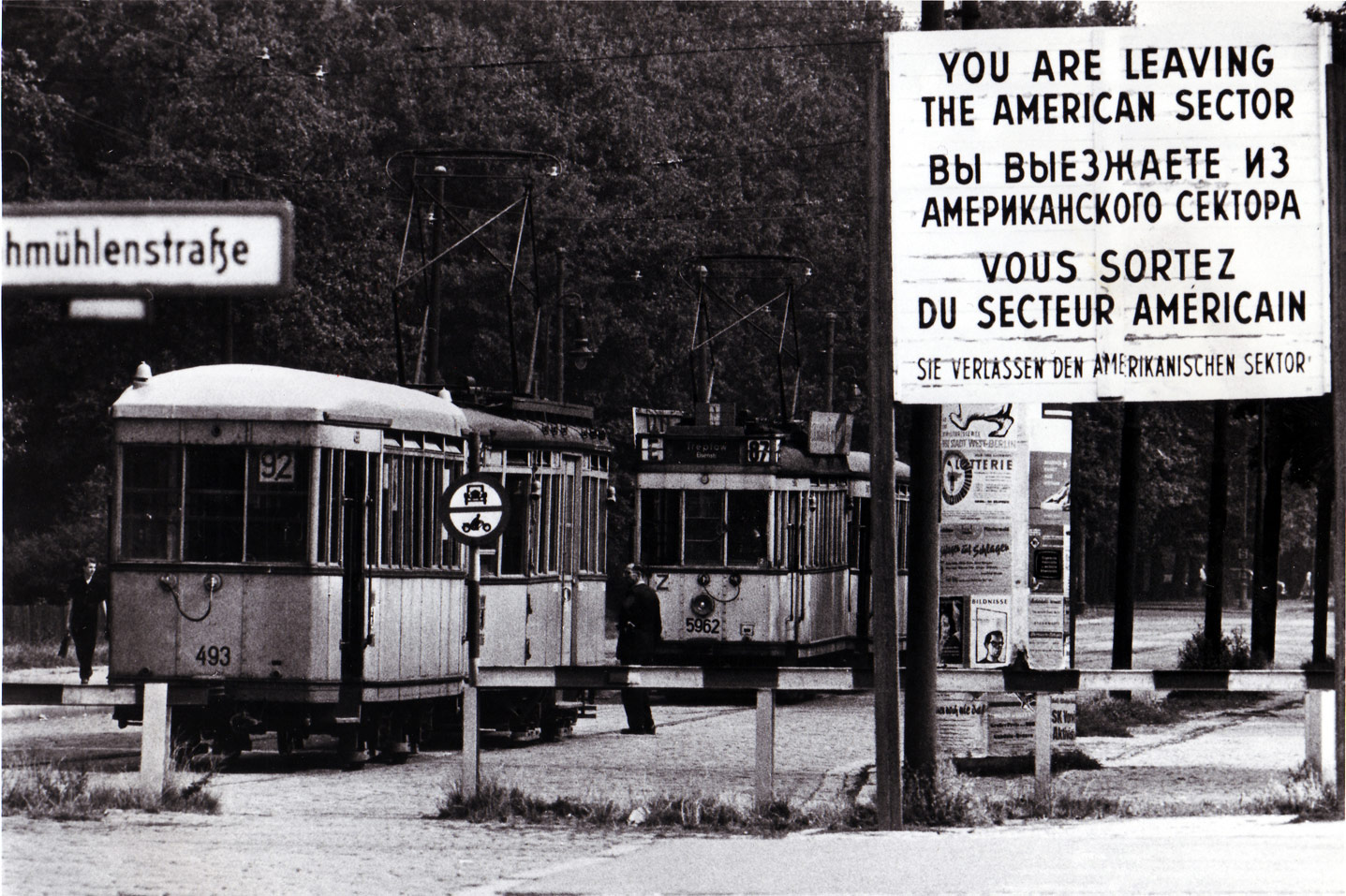
At the start of the blockade, West Berlin had just over two million inhabitants in need of supplies. Sign indicating the boundary of the American sector in divided Berlin. When the Soviets broke off relations with their allies, the tracks were taken up and the tramways stopped at the boundary of their sector to prevent Berliners from travelling to the West. © American Cultural Center
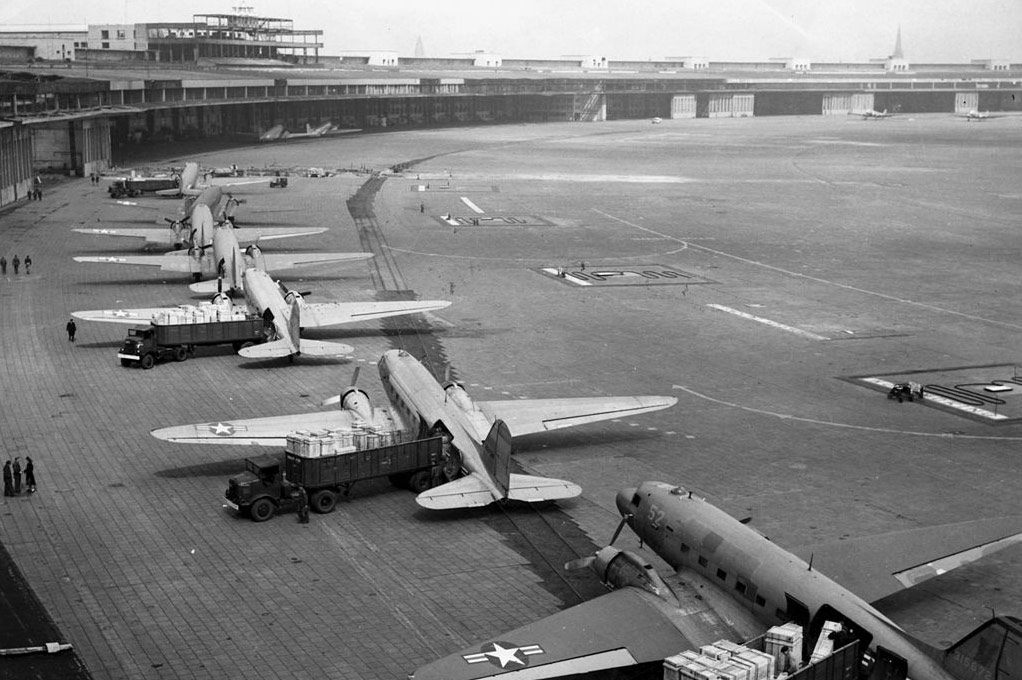
On 26 June 1948, the first American C-47 planes landed at West Berlin's small Tempelhof airport. © National Museum of the U.S. Air Force
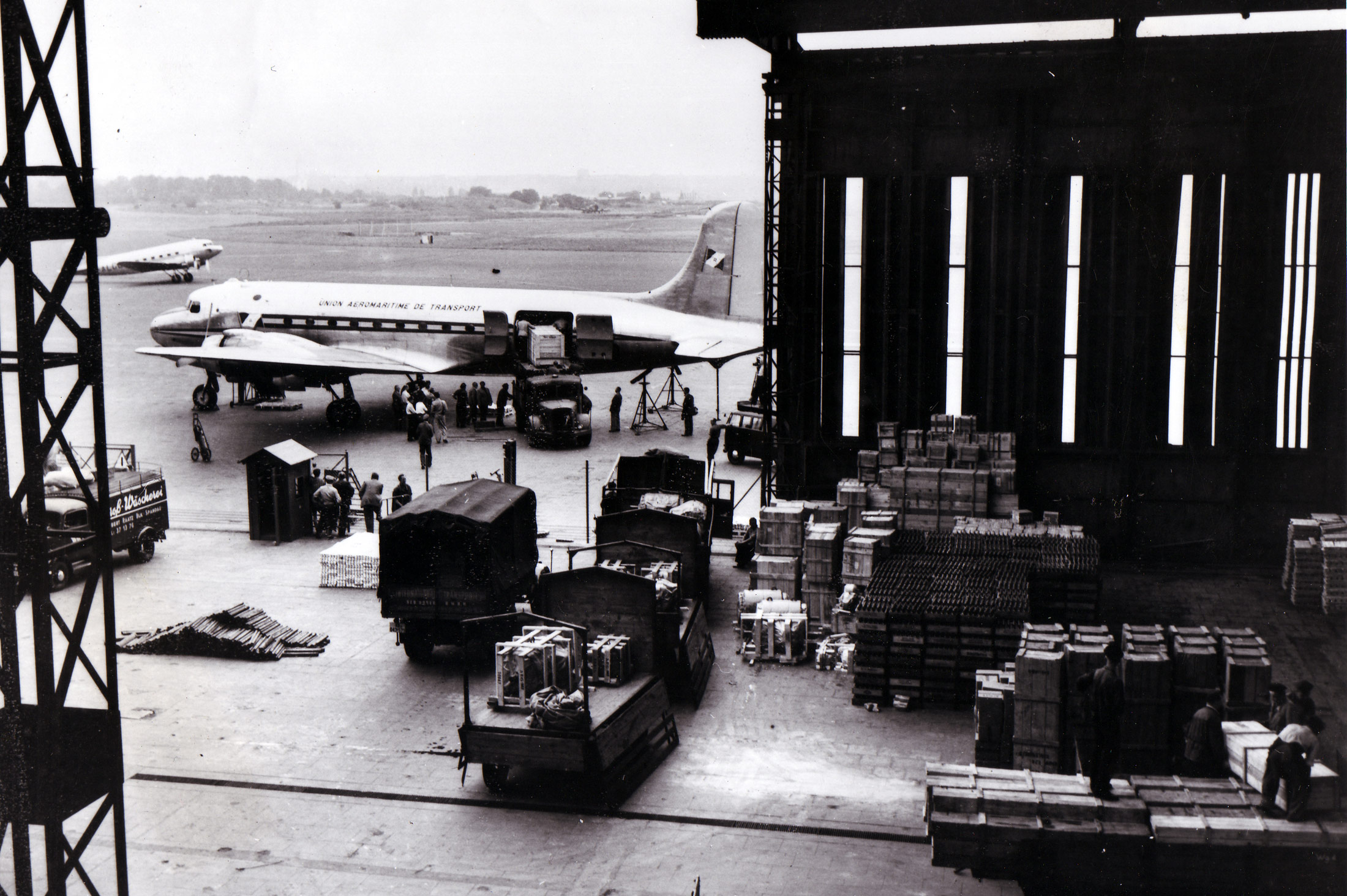
The US and the UK played the biggest roles in the airlift, but France, Australia, Canada, New Zealand and South Africa also took part. French plane belonging to the Union Aéromaritime de Transport airline.
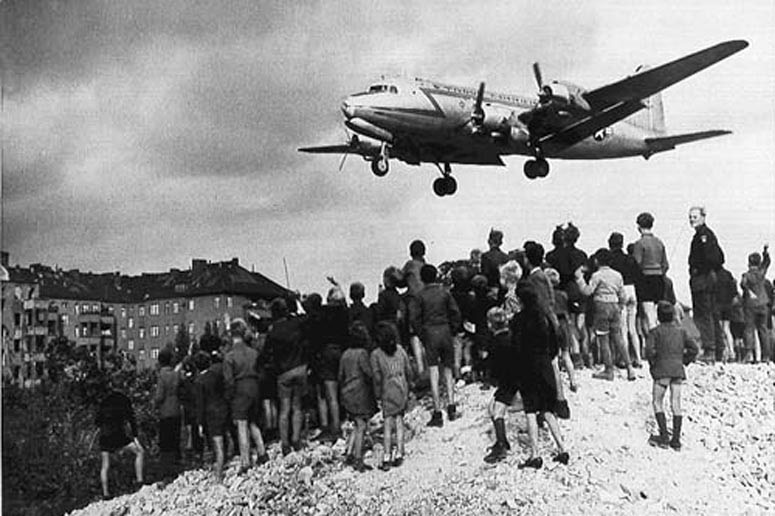
Berliners watching a US Air Force C-54 Skymaster land at Tempelhof airport. The plane was nicknamed the Rosinenbomber (Candy Bomber) by children in Berlin since its crews would drop candy as they flew overhead.
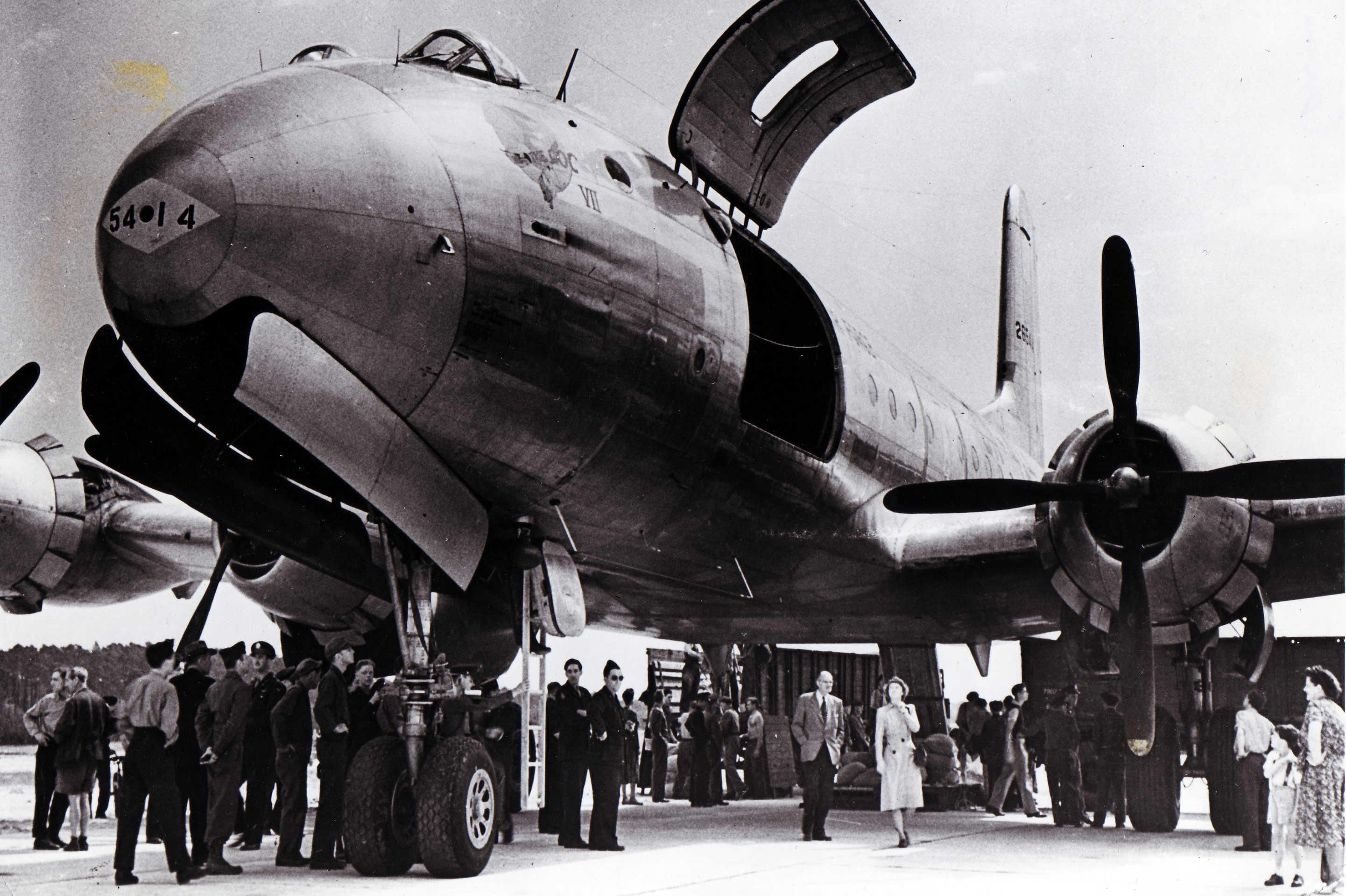
The huge aircraft used later on, such as the C-74s, had a much bigger capacity, allowing the Allies to transport tons of coal Berliners needed to make it through the harsh winter.
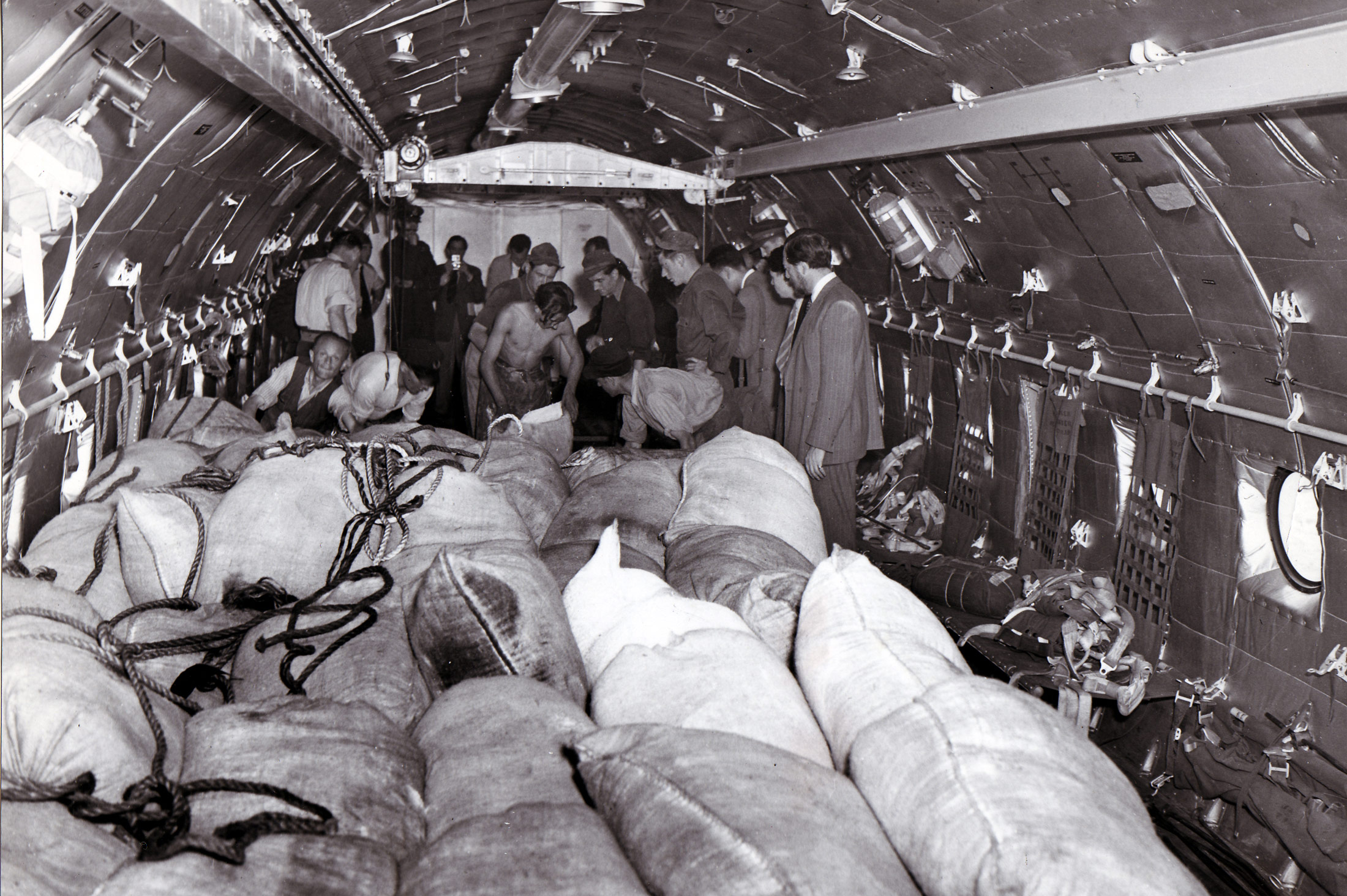
From 16 April 1949, Allied airplanes were landing at a rate of one every minute, and a record 12,941 tons were transported on that date. A shipment of goods at Tempelhof airfield in the American sector of Berlin.

Pilots had just one attempt at landing. If the attempt failed, they had to turn back with their full load.
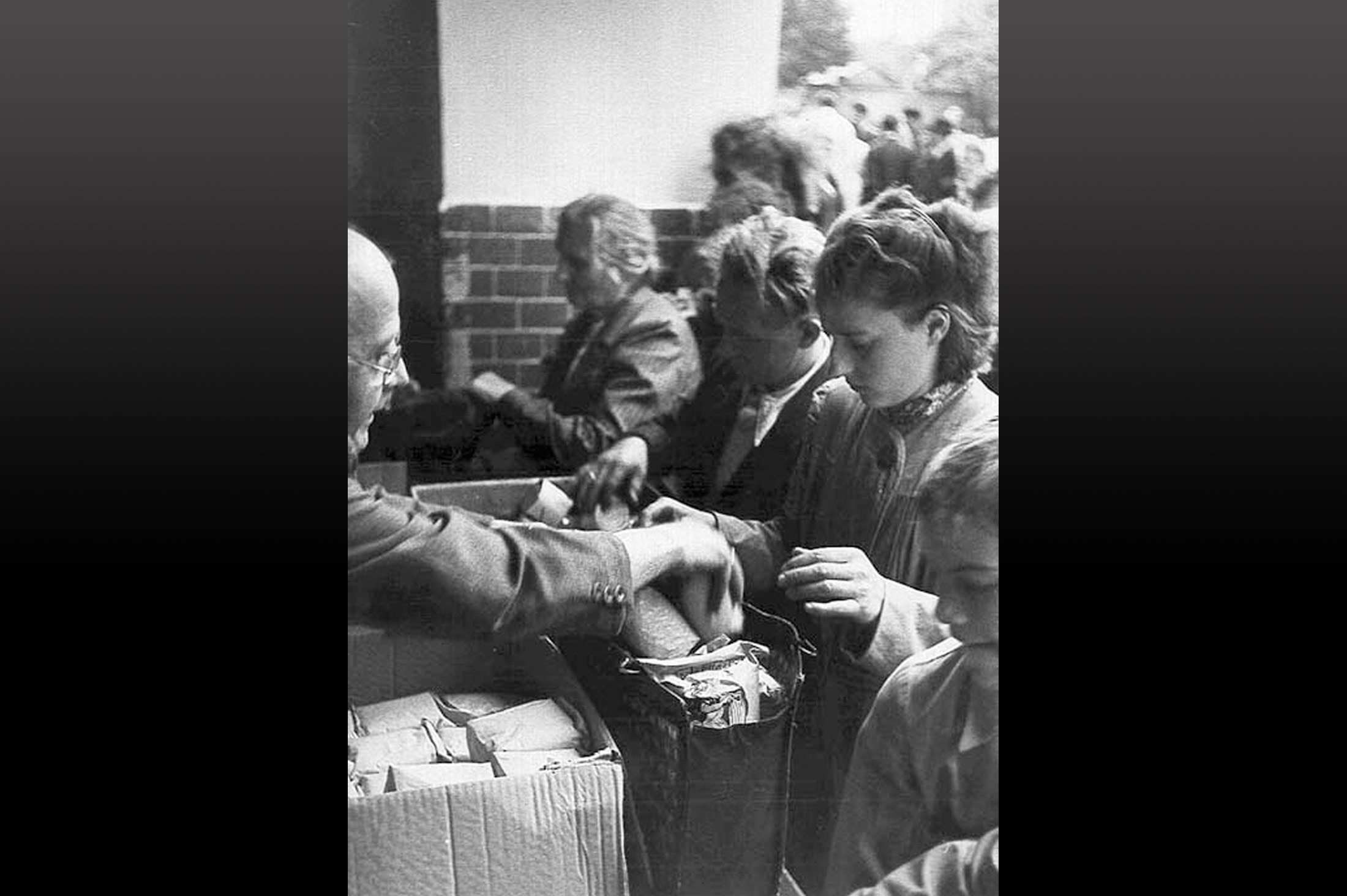
The Soviet Union lifted the blockade at midnight on 12 May 1949. The traffic between the Allied zones and the Soviet zone was at long last re-established. The airlift, however, continued until 30 September because the Western Allies feared reprisals. Distribution of supplies to Berliners.
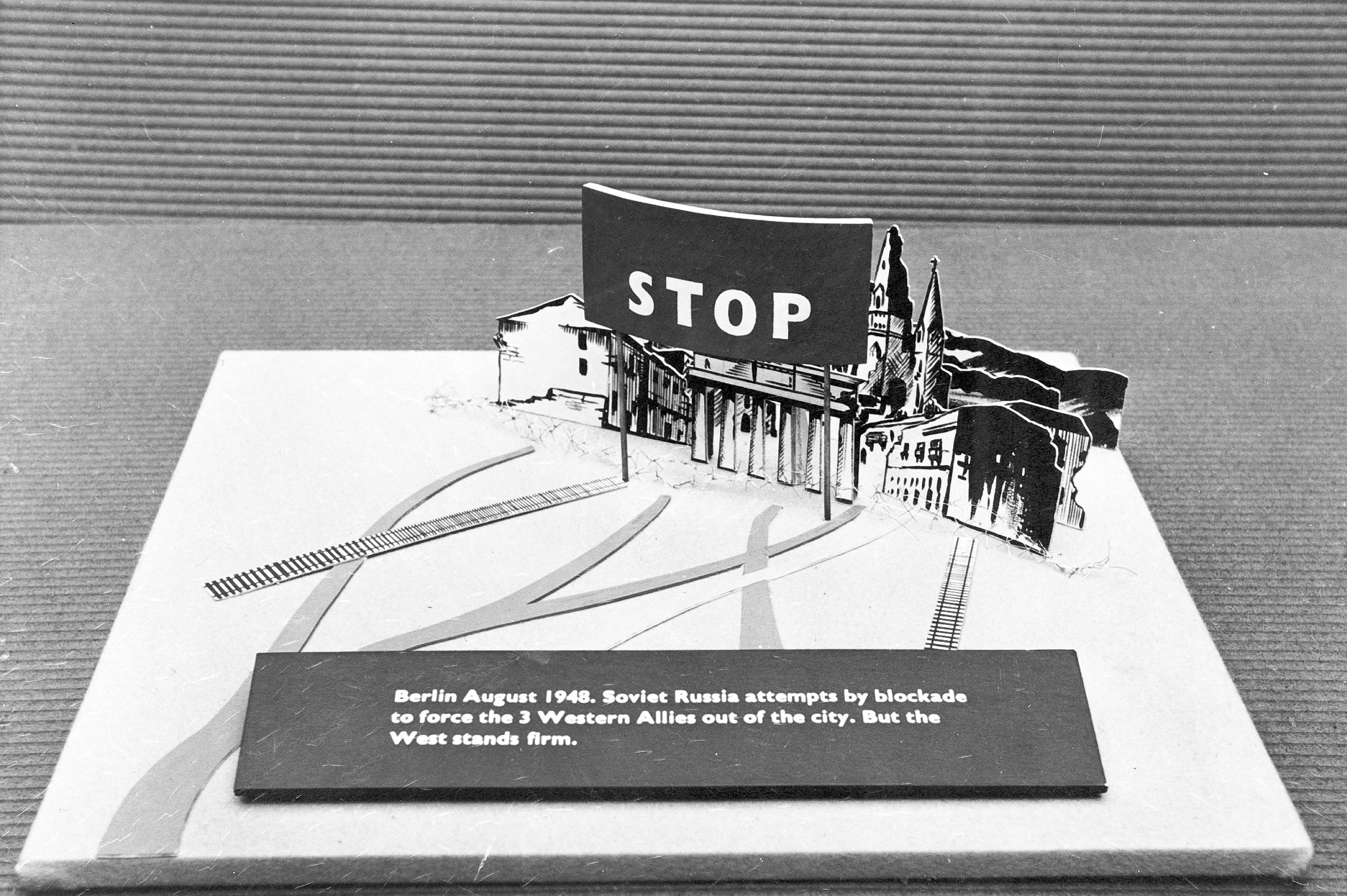
The blockade lasted 324 days and a total of 2,110,480 tons of freight was transported to West Berlin. Illustration of the Berlin Blockade presented at a NATO exhibition in the fifties.
